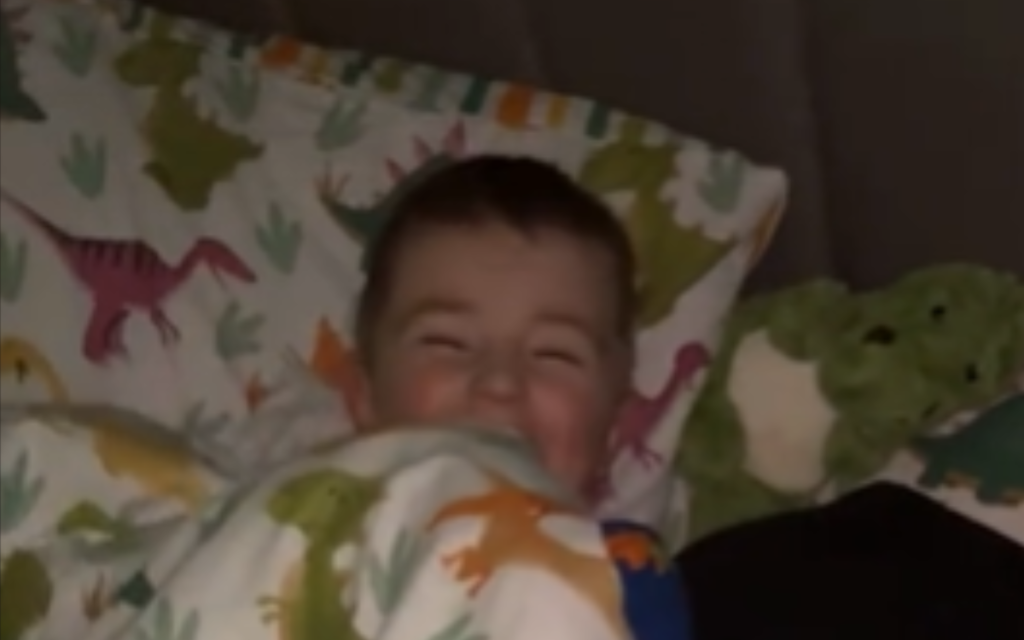The transition to a larger bed for a toddler can be a significant milestone, often fraught with potential sleep disruptions for both the child and the parents. This delicate period is marked by the need for consistent routines, as any change can easily upset the precarious balance of a child’s sleep schedule. The Centers for Disease Control and Prevention (CDC) recommends a substantial amount of sleep for children in this age group, underscoring the importance of establishing healthy sleep patterns. For children aged 3 to 5, the recommended sleep duration is between 10 and 13 hours, while children aged 6 to 12 require 9 to 12 hours. However, achieving these recommended hours can be challenging, especially during the early years of a child’s life, as sleep deprivation is a common experience for new parents, often lasting for the first six years of their child’s life, according to a 2019 study published in the journal Sleep.
In the case of Lauren Gallichan and her 3-year-old son, the transition to a full-sized double bed presented a potential sleep disruption. Recognizing their son was outgrowing his toddler bed, Gallichan and her husband opted for a larger bed, anticipating the benefits of shared reading time and the bed’s longevity. While such a change can be disruptive for some children, Gallichan’s son adapted remarkably well, embracing the change and the opportunity for cozy bedtime stories with his parents. This smooth transition highlights the individual differences in children’s adaptability and the importance of a supportive and positive environment.
Despite the overall success of the transition, the new bed presented an unexpected challenge. One evening, while putting their son to sleep, Gallichan’s husband succumbed to exhaustion and fell asleep alongside his son. This incident underscores the pervasive nature of sleep deprivation among parents, especially those with young children. The demands of work and childcare often leave parents with little time for restorative sleep, leading to moments of unintended slumber, even in unconventional locations. Gallichan’s husband, known for his ability to fall asleep quickly, proved vulnerable to this parental pitfall.
The comical yet relatable incident unfolded predictably. Gallichan, upon checking on her husband and son, discovered her husband fast asleep in the new "big boy" bed, while her son remained wide awake. The scene, captured in a TikTok video, showcases the humorous side of parenting challenges, resonating with many who have experienced similar sleep-deprived moments. The son’s whispered "daddy sleeping, ssssh" adds a touch of innocence and understanding to the situation, demonstrating the child’s awareness of his father’s unintentional nap.
The situation required intervention, as the son, accustomed to sleeping alone, was unable to settle with his sleeping father beside him. Gallichan woke her husband, who then left the bed, allowing their son to drift off to sleep shortly after. This incident, though amusing, highlights the importance of consistent bedtime routines for young children. Even a seemingly minor change, such as a parent’s presence in the bed, can disrupt a child’s sleep.
While the incident provided a moment of levity, it also serves as a reminder of the ongoing challenges faced by parents navigating the complexities of their children’s sleep. Though Gallichan’s husband hasn’t repeated the offense, she acknowledges the likelihood of a recurrence, accepting it as an inevitable part of the parenting journey. This acceptance reflects the resilience and humor often required to navigate the unpredictable terrain of parenthood. The experience serves as a humorous anecdote, a shared experience that resonates with other sleep-deprived parents, reminding them that they are not alone in these comical, yet challenging, situations.


